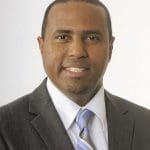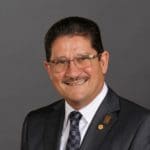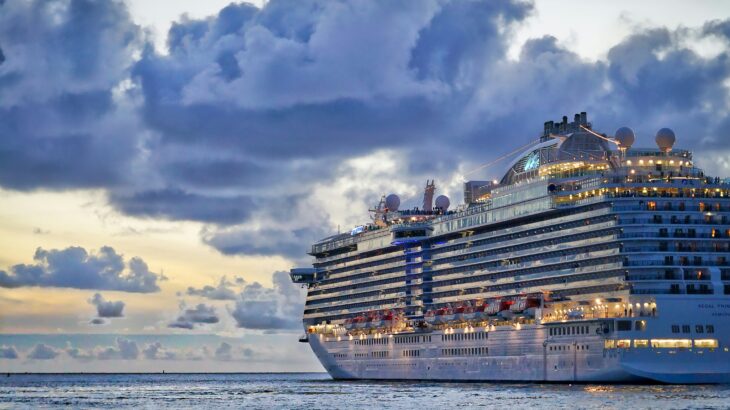The Caribbean is no stranger to disaster. In a COVID-19 world, however, the Caribbean faces not only an unknown future for itself but a future in which its typically stable partners are experiencing the same economic contraction. Is there a way for the Caribbean to emerge stronger, and more resilient?
With Caribbean islands in various stages of lockdown, on a recent webinar, we asked four experts to share insights on how COVID-19 is impacting the economy in the short term, how leaders can proactively respond, and what it could mean long-term for power markets and sustainable, resilient economies in the Caribbean.
Listen to the webinar recording in full here and sign up to our newsletter for more COVID-19 coverage.
“Leaders must invest in a diversified future to reduce our overall vulnerabilities”
Justin Ram, Director of Economics, Caribbean Development Bank

The Caribbean is always strongly impacted by what happens globally, but the economic impact in the Caribbean is under particular duress due to the reliance on tourism. “Over the next six months, tourism could decline by 50% or even 80% or 100%,” said Justin Ram. “A lockdown in our major source markets, including North America and Europe, will mean we will not have the numbers we expected. This could mean a 10% decline for some country’s GDPs, and some up to 30%.”
In the wake of a collapsing oil price and economic contraction, there may be a silver lining if leaders can proactively respond. “These are abnormal times,” said Ram. “In normal times, the oil price decline would have an impact on renewable energy growth, but we can use this time to invest in other forms of energy that can make our economies competitive in the long term. A move towards renewable energy – and away from variable oil prices – would bring greater levels of investor confidence, and could drive diversification – a great enabler of our economies.”
What’s the next step, then? Ram suggests leaders need to build greater resilience into Caribbean economies and one way to do that is by creating a Caribbean-wide economy, to open up investment across the region. “These types of crises will keep coming and impacting islands across the region. If we build in resilience, we’ll have the buffers to handle them. There will have to be a regional push – perhaps from our international partners, including multilaterals and bilateral trading partners – to help us move in the right direction. Of course, shutting down economies to preserve life and well-being is essential now. But when this is over, we need to get onto a path of building resilience.”
“The disruption will allow us to reinvent ourselves”
Rick Case, Director of Engineering Services, JPS

JPS continues to grow its renewable energy portfolio, but how has COVID-19 impacted the Jamaican utility in the short term, and what is the long-term outlook? “We have seen demand falling in the rate classes where the greatest revenue would normally come from, including large hotels, industry, and commerce,” said Rick Case. “In total, demand for energy has fallen 13% off-peak and 10% evening peak. As the economy slows down, the customers’ ability to pay and the ability for the utility to collect may become an issue.”
The utility continues to run scenarios and stress tests to assess short-term and long-term impacts. “We’re not seeing restrictions on the fuel-side, and we’re not worried about future investments in renewable energy generation based on the fall in oil prices,” said Case. “The impending RFP will be issued later in the year once the government procurement entity reestablishes itself. Our big focus right now is on keeping our employees safe, communicating with customers, and ensuring the survival of our working capital. Trying to stay afloat, as best as possible.”
Taking the pulse of regional utilities, it seems like the experience is similar across the board. “We’re all in the same boat,” Case said. “We have questions around how to deploy work crews safely. How to enter customer premises. We have ongoing projects that we’ll have to reprioritize as we wait for suppliers to be able to deliver and experts who aren’t able to travel here. We’re building the bicycle as we ride it.”
While JPS is in the midst of battlefield triage, the pandemic is changing normal working operations. “The disruption will allow us to reinvent ourselves,” said Case. “There will be bad, we will have disruptions, but in the long haul we can be much more productive and efficient across the board. We’re going to have more resilient people, and learn how we want to work together. The future is bright.”
“This pivot to being more proactive can usher in a new era of innovation for the Caribbean”
Racquel Moses, CEO, Caribbean Climate-Smart Accelerator

Building clean resilient energy is not at the top of the list at the moment. Funds meant for these projects are being diverted to the COVID-19 response. “We’re seeing a complete distraction from moving to renewable energy because there just isn’t the bandwidth right now,” said Raquel Moses. “Speaking with OECS this week, they are wanting to divert funding to COVID-19 that could’ve been put to renewable energy projects. It’s not unreasonable, but it’s incredibly unfortunate.”
The question of whether the tourism industry will return to its former state is anyone’s guess. But, Moses agrees that diversification is vital to economic resilience. “We must open our eyes to the reality that tourism may not return, and the next time something wipes out the global tourism industry, diversification will help islands be sure we’re not left flat on our back. We’re seeing many organizations and businesses innovating, moving online, finding ways to operate more efficiently. So what business opportunities are emerging? We can get involved in manufacturing medical equipment and medical masks, and weigh opportunities in other cottage industries. We really need to focus on how we can sprint out of this and look forward to where we need to be.”
The unique situation of a global pandemic means that all economies are hit, and that puts the Caribbean in a unique position to innovate. “ Typically when a hurricane hits, we are hit alone,” said Moses. “But this is something that is hitting us all evenly, so we are starting on an even playing field in our ability to leapfrog out of this situation into an era of thinking differently and behaving differently. Governments across the region have been uncharacteristically proactive in their responses to COVID-19. This is ushering in a new era of innovation for us. We need to create that space and help governments understand that this pivot to being more proactive is something that we can do on a regional level to get gains in areas we’ve been discussing for a long time.
“Puerto Rico can be a manufacturing hub”
Carlos Rodriguez, President, PRMA

Puerto Rico is unique in the Caribbean, given its economy does not heavily rely on tourism. Notwithstanding, the impact will be far-reaching. In the short-term there are questions around how COVID-19 is impacting the ongoing PREPA restructuring, as well as infrastructure recovery from recent earthquake damage at its Costa Sur Power plant. “Right now, everything is on hold,” said Carlos Rodriguez. “The hearing for the bondholder restructuring agreement (RSA) has been moved to November.”
On the impact to the grid, “Our biggest concern with our power grid is the damaged 800 MW power plant that accounts for ⅓ of capacity, which has still not been repaired. There are a few options on the table, but the price tag of $40-$50m to fix it isn’t worth it because the damage is too much. We’ve gone back to diesel at other plants, which has increased costs, as well.”
What kind of economic opportunity is Puerto Rico seeing as a result of COVID-19? One industry being explored is goods and supplies for U.S. national security, which could be vital for the U.S. in the short and long term. “We’ve been working very hard for the past 10 days for the government to allow us to re-open our textile industry, which accounts for 70% of army uniforms for the U.S.,” said Rodriguez. “We’re asking, ‘Can we open these factories and shift manufacturing towards PPE equipment’? We have all the capacity and equipment to do this, and we are looking at how we can attract more of this manufacturing of national security equipment and PPE to Puerto Rico.”
Puerto Rico and the rest of the Caribbean are bracing for impact as the global pandemic throttles economies and livelihoods. There is no silver bullet. But if there is to be a silver lining, regional leaders will need to unite behind a rigorous, long-term vision for island nations which are diversified and resilient.


